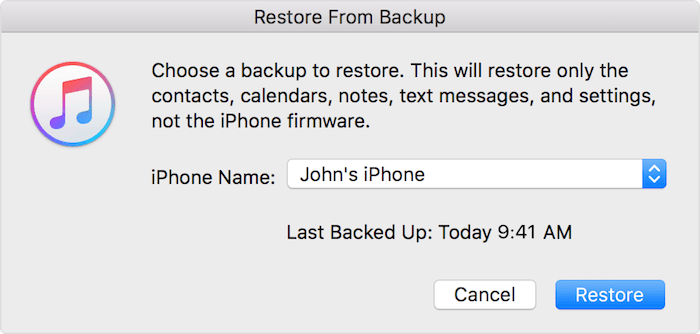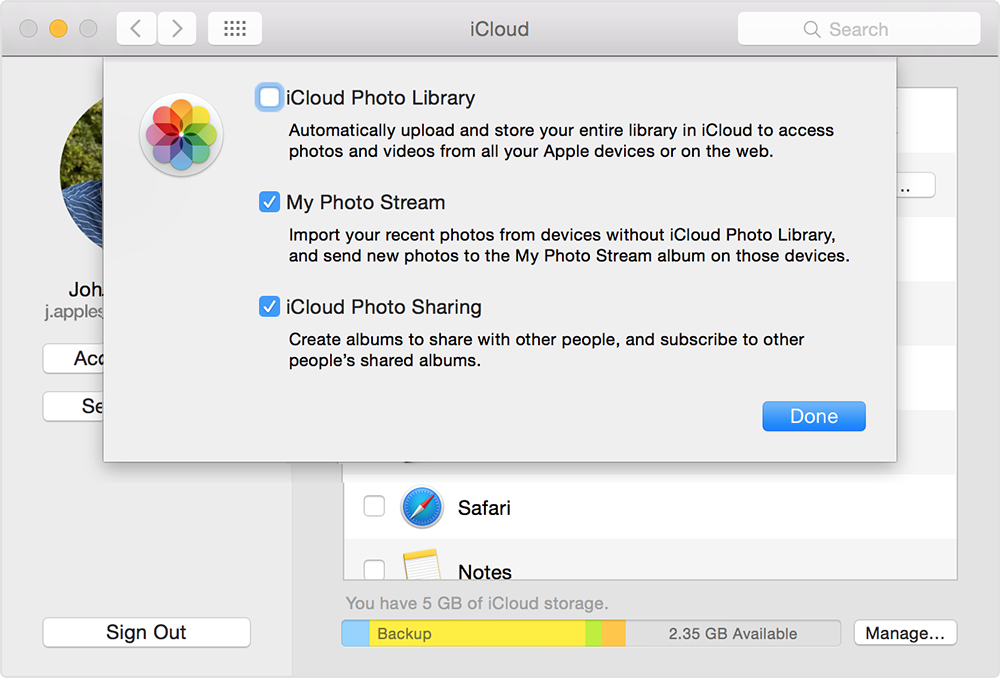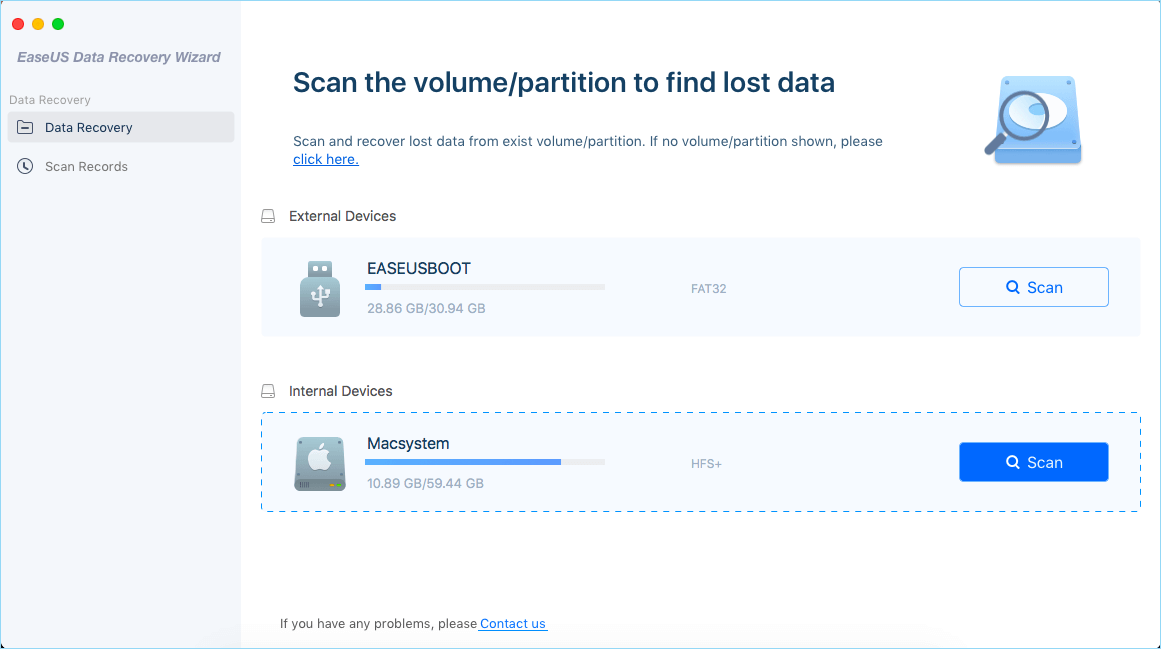- Mac Restore From Backup Photos Library System Software
- Restore From Backup Icloud
- Restore From Backup Itunes
- App Backup & Restore
Connect your Time Machine backup drive to your Mac; Select the backup that you wish to restore; Click on ‘Restore’ Recover macOS caches folder, log files, Library folders automatically. If your data has been permanently deleted and you don’t have a backup from which you can recover it, the most reliable option to restore them is to opt. If you backup your Mac with Time Machine, then you can easily restore a photo library. If you use 'iCloud Photo Library' and you restore the 'System Photo Library' from a Time Machine backup, then any photos that you have deleted since the last Time Machine backup are restored to.
You may have already heard my diatribe about backing up your devices in order to safeguard your most precious data. If you're already using iCloud to sync your content, do you really need to do a full backup? Yes. One of the biggest reasons a full backup is so important is to cover you if or when your device crashes and you lose everything.
If you're in the middle of a very important, time-sensitive project and your Mac poops out, you may have protected the document you're working on in iCloud, but without a backup, you didn't protect your apps or settings and it'll take you a really long time to get things back the way you want them. With a recent backup, you can just restore your Mac and continue working. Believe me — you'll be happier if you just back up your Mac.
How to restore your Mac from a Time Machine backup
Mac Restore From Backup Photos Library System Software
If you use Time Machine to back up your Mac, you can restore individual files, or restore your entire hard drive from a recent backup.
Note: Because you have to enter Recovery mode on your Mac, I suggest printing out these instructions or switching to another device to read them.
- Restart your Mac.
- While the startup disc is waking up, hold down the Command and R keys simultaneously. You're Mac will boot into macOS Utilities. If it doesn't, try again.
- Select Restore from Time Machine Backup from the list of available options.
- Click Continue.
- Click Continue on the Restore Your System Page.
- Select your Time Machine Backup.
- Click Continue.
- Select the most recent backup of your Mac's hard drive.
- Click Continue.
Your mac will restore the Time Machine backup and then restart once it is finished.
How to restore your Mac from a local backup
If you clone your Mac using a cloning program like Super Duper or Carbon Copy Cloner, you can restore your entire hard drive from a backup, and even create a bootable installer.
Note: Because you have to enter Recovery mode on your Mac, I suggest printing out these instructions or switching to another device to read them.

- Restart your Mac.
- While the startup disc is waking up, hold down the Command and R keys simultaneously. You're Mac will boot into macOS Utilities. If it doesn't, try again.
- Click on Disk Utility.
- Click Continue.
- Select your Mac's hard drive.
- Click the Restore tab at the top of the Disk Utility window.
- Select the external hard drive that your cloned backup is stored next to 'Restore From.'
- Select your Mac's hard drive next to 'Restore to.'
- Click Restore.
Your Mac will restore the cloned backup and then restart once it is finished.
If you want to install a bootable backup, hold down the Option key while your Mac is restarting and select the clone from your external hard drive in your partitioned hard drive.
How to restore your Mac from a cloud backup
If you use a cloud-based backup service, like Backblaze or CrashPlan, you can download missing data so you can restore you Mac.
Each cloud-based backup service is different. All of them will require that you download a backup from their remote servers, though - unless the service offers to send you a physical hard drive that you can use as a backup (Backblaze offers this feature).
Most programs will have a Restore files tool right in the user interface. You can launch the remote app on your Mac, or visit the company's website.
You can then select the files and folders you want to restore from your backup menu.

Because you either have to download files from the Internet, or send away for a physical copy, I only recommend using a cloud-based backup service to restore your Mac if you don't already have a local backup on hand. It is very time consuming and less efficient than restoring directly from an external hard drive you have sitting right on your desk.

Any questions?
Do you have any questions about how to restore your Mac from a recent backup? Put them in the comments and I'll help you out.
Restore From Backup Icloud
Backing up: The ultimate guide
Main
🍎 ❤️Apple reminds us all that 'creativity goes on' in new YouTube video
Apple's latest YouTube video knows just how to tug at the heartstrings.
If you got a new Mac and decided to start over from scratch instead of using a Time Machine backup, you may have come across a moment when you realize that there are a few files or applications sitting in your old Mac (or in an old Mac Time Machine backup) that you need. You can get those files onto your new Mac without having to restore the entire backup. Here's how.
First thing's first: Back up your Mac... both of them
If you still have your old Mac, go ahead and do a fresh backup with Time Machine before recovering files on your new Mac. It might seem redundant, but the file you need may not have been backed up before you switched over. A fresh backup never hurt anyone.
You should also run a quick backup on your new Mac for safety sake. There's no need to worry about making changes. If something goes wrong, you can always recover from a backup.
If you don't have your old Mac, just use the latest backup on file on with Time Machine on your external hard drive.
How to recover specific files from your old Mac on your new Mac
Here's the easy part. Just connect the external hard drive that you were storing your old Mac's Time Machine backups on. If you were using the same external hard drive for you old and new Mac, you've already completed the first step!
- Double-click on the Time Machine external hard drive you connected that was used to back up your old Mac.
- Double-click on the Backups.backupdb folder.
Double-click on your old Mac folder.
- Double-click on Latest. It should be the last file on the list.
Double-click on Macintosh HD.
- Select the folder that stores the files you want to recover, like Applications, Library, System, or Users.
- Drag the file to your desktop to make a copy of it.
Enter your User account password if prompted.
The new file will now be on your new Mac and you can use it as if it had always been there.
How to recover files from another Mac when you're using a NAS
If you're on a network attached storage (NAS) hard drive to save and store backups, you may have noticed that you're having a difficult time accessing files from your old Mac on the hard drive. I don't personally use a NAS, and so have not been able to test this method, but StackExchange user bofolsen noted that you can access restricted NAS file on your new computer after you create a new User with the same login credentials as the one you used with your old Mac.
- Create a new user account on your Mac. This new user account should have the same name and password as your old Mac.
- Log in to the new user account.
- Open your Time Machine folder using Finder.
- Double-click on the Backups.backupdb folder.
Double-click on your old Mac folder.
- Double-click on Latest. It should be the last file on the list.
Double-click on Macintosh HD.
- Select the folder that stores the files you want to recover, like Applications, Library, System, or Users.
- Drag the file to your desktop to make a copy of it.
Enter your user account password. Remember, this should be the same user account information that you used with your old Mac.
Restore From Backup Itunes
I haven't personally verified these steps since I don't use a NAS for my backup solution but if you try it, let me know how it works.
Any questions?
App Backup & Restore
Do you have any questions about how to recover specific files from your old Mac on your new one using Time Machine? Put them in the comments and we'll help you out.
Backing up: The ultimate guide
Main
More Apple TV+ contentMartin Scorsese's next movie might come to Apple TV+ after Paramount walked
Spiraling costs have put Paramount off Scorcese's next gig and Apple TV+ is one potential suitor. Netflix is said to be another potential avenue.